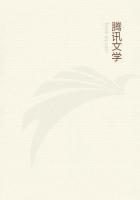The remedy for all this therefore, real or potential, mischief, is said to lie in the vote by ballot, a contrivance, by means of which every man shall be enabled to give his vote in favour of or against any candidate that shall be nominated, in absolute secrecy, without it being possible for any one to discover on which side the elector decided,--nay, a contrivance, by which the elector is invited to practise mystery and concealment, inasmuch as it would seem an impertinence in him to speak out, when the law is expressly constructed to bid him act and be silent. If he speaks, he is guilty of a sort of libel on his brother-electors, who are hereby implicitly reproached by him for their impenetrableness and cowardice.
We are told that the institution of the ballot is indispensible to the existence of a free state, in a country where the goods of fortune are unequally distributed. In England, as the right of sending members to parliament is apportioned at the time I am writing, the power of electing is bestowed with such glaring inequality, and the number of electors in many cases is so insignificant, as inevitably to give to the noble and the rich the means of appointing almost any representatives they think fit, so that the house of commons may more justly be styled the nominees of the upper house, than the deputies of the nation.
And it is further said, Remedy this inequality as much as you please, and reform the state of the representation to whatever degree, still, so long as the votes at elections are required to be given openly, the reform will be unavailing, and the essential part of the mischief will remain. The right of giving our votes in secrecy, is the only remedy that can cut off the ascendancy of the more opulent members of the community over the rest, and give us the substance of liberty, instead of cheating us with the shadow.
On the other side I would beg the reader to consider, that the vote by ballot, in its obvious construction, is not the symbol of liberty, but of slavery. What is it, that presents to every eye the image of liberty, and compels every heart to confess, This is the temple where she resides? An open front, a steady and assured look, an habitual and uninterrupted commerce between the heart and the tongue. The free man communicates with his neighbour, not in corners and concealed places, but in market-places and scenes of public resort; and it is thus that the sacred spark is caught from man to man, till all are inspired with a common flame. Communication and publicity are of the essence of liberty; it is the air they breathe; and without it they die.
If on the contrary I would characterise a despotism, I should say, It implied a certain circumference of soil, through whose divisions and districts every man suspected his neighbour, where every man was haunted with the terror that "walls have ears," and only whispered his discontent, his hopes and his fears, to the trees of the forest and the silent streams. If the dwellers on this soil consulted together, it would be in secret cabals and with closed doors; engaging in the sacred cause of public welfare and happiness, as if it were a thing of guilt, which the conspirator scarcely ventured to confess to his own heart.
A shrewd person of my acquaintance the other day, to whom I unadvisedly proposed a question as to what he thought of some public transaction, instantly replied with symptoms of alarm, "I beg to say that I never disclose my opinions upon matters either of religion or politics to any one." What did this answer imply as to the political government of the country where it was given?
Is it characteristic of a free state or a tyranny?
One of the first and highest duties that falls to the lot of a human creature, is that which he owes to the aggregate of reasonable beings inhabiting what he calls his country. Our duties are then most solemn and elevating, when they are calculated to affect the well being of the greatest number of men; and of consequence what a patriot owes to his native soil is the noblest theatre for his moral faculties. And shall we teach men to discharge this debt in the dark? Surely every man ought to be able to "render a reason of the hope that is in him," and give a modest, but an assured, account of his political conduct.
When he approaches the hustings at the period of a public election, this is his altar, where he sacrifices in the face of men to that deity, which is most worth his adoration of all the powers whose single province is our sublunary state.
But the principle of the institution of ballot is to teach men to perform their best actions under the cloke of concealment. When I return from giving my vote in the choice of a legislative representative, I ought, if my mode of proceeding were regulated by the undebauched feelings of our nature, to feel somewhat proud that I had discharged this duty, uninfluenced, uncorrupted, in the sincere frame of a conscientious spirit. But the institution of ballot instigates me carefully to conceal what I have done.
If I am questioned respecting it, the proper reply which is as it were put into my mouth is, "You have no right to ask me; and I shall not tell." But, as every man does not recollect the proper reply at the moment it is wanted, and most men feel abashed, when a direct question is put to them to which they know they are not to return a direct answer, many will stammer and feel confused, will perhaps insinuate a falshood, while at the same time their manner to a discerning eye will, in spite of all their precautions, disclose the very truth.














